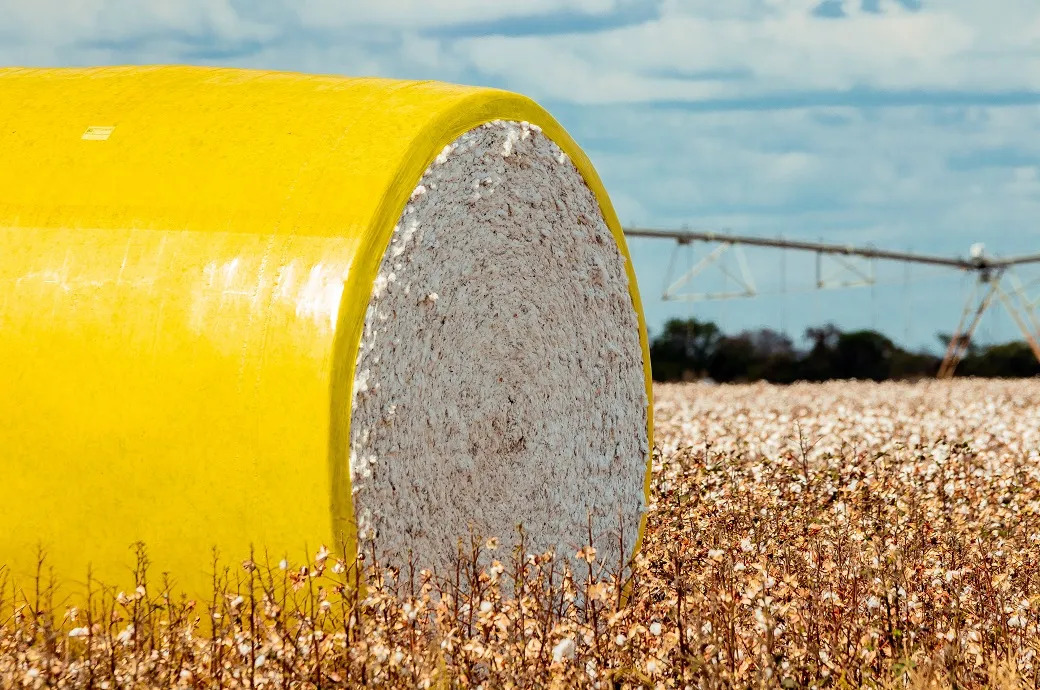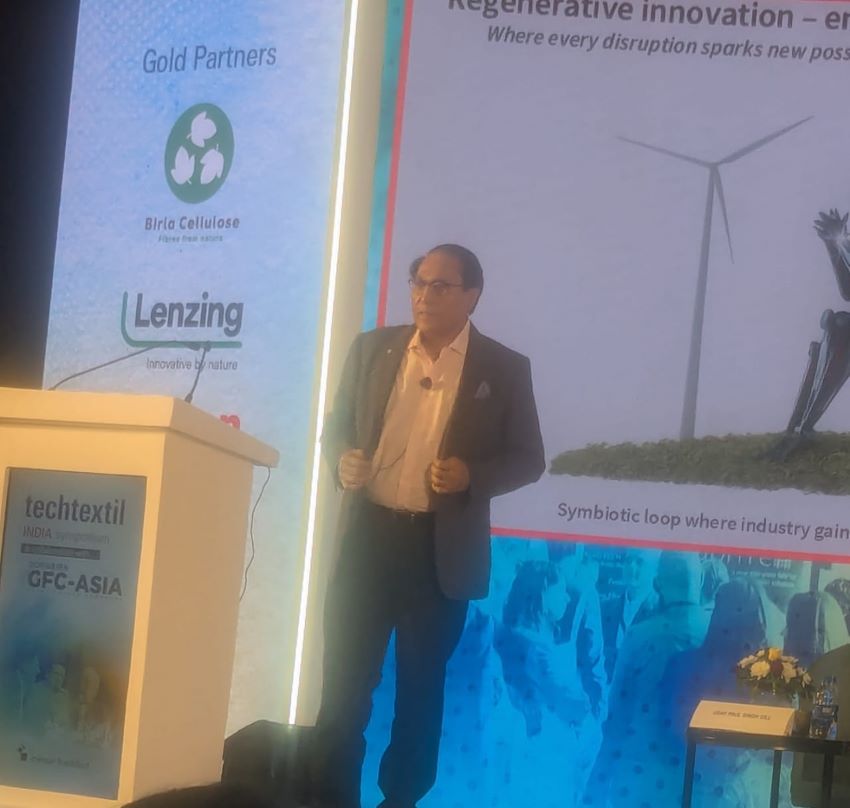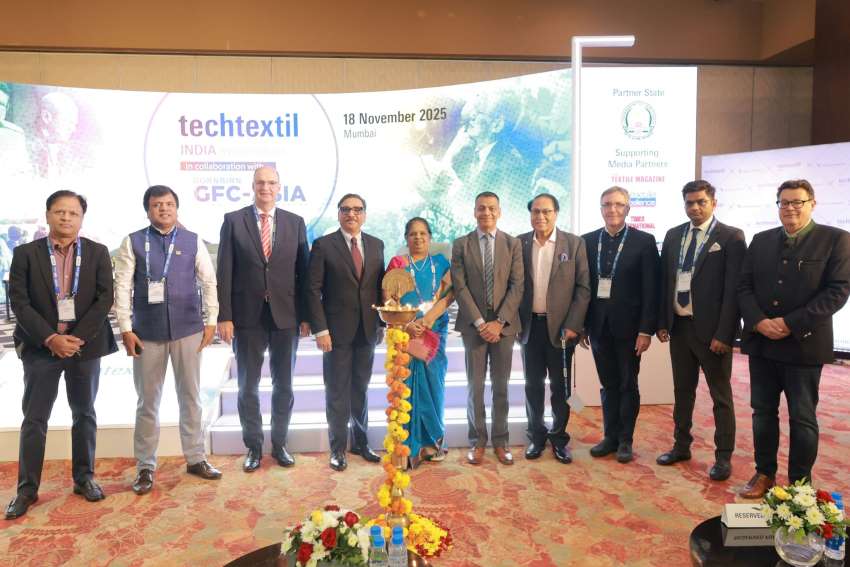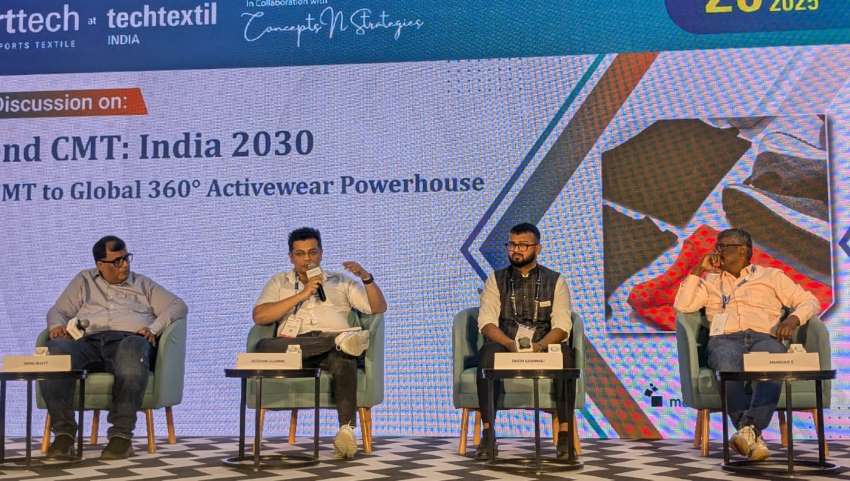FW
Digital darling Kim Kardashian's Skims brand aggressively challenges legacy apparel giants with global store push.Skims, has solidified its status as a major market disruptor, achieving a staggering $5 billion valuation after securing a $225 million funding round. This new capital isn't just a financial win; it signals an aggressive shift from its roots as a digital-first, direct-to-consumer (DTC) success to a global physical retail powerhouse.
Skims, co-founded with CEO Jens Grede, achieved an estimated $750 million in 2023 revenue by championing inclusive sizing (XXS to 5X) and diverse skin tones—a strategy that directly undercut legacy brands like Victoria’s Secret. The brand’s product line, spanning shapewear, loungewear, and activewear, is now pivoting to brick-and-mortar.
The Physical Gambit
While Skims currently operates around 20 physical locations, Grede has declared the brand will become a "predominantly physical business" globally. This move is crucial for intimate apparel, allowing customers the essential try-on convenience that digital channels lack.
Skims challenges the athleisure king
The expansion into physical retail, combined with recent high-profile moves like the NikeSkims collaboration, positions the brand as Lululemon’s most potent new competitor in the $440 billion activewear market. The brand's ability to generate massive FOMO with viral product drops (like a 250,000-person waitlist for a simple dress) demonstrates a marketing engine legacy players struggle to replicate.
Skims is forcing retail reckoning, the future belongs to brands that can seamlessly merge digital hype with accessible, inclusive physical shopping experiences. Its performance and valuation prove celebrity influence, when paired with genuine product innovation and a smart retail strategy, can rapidly eclipse established market leaders.
The recent opening of COS (Collection of Style) at Bellevue Square in Washington State is a highly visible signal of the London-based brand's escalated campaign to dominate the "affordable luxury" niche in the competitive US market. Spanning 2,454 square feet and designed in-house, the store, reportedly featuring elements like sculptural furnishings and Armourcoat clay lime plaster, is an integral part of COS's Elevation Strategy, blurring the line between high-street retail and art installation to attract a discerning clientele. This move directly addresses a consumer shift toward conscious, quality-driven style that values longevity over fleeting trends.
The H&M Group’s quiet luxury counterpart
Founded in 2007 by the Swedish H&M Group, COS was established as the sophisticated sibling to H&M, offering contemporary, minimalist clothing at a mid-range price point. This historical positioning is now amplified by the broader "quiet luxury" movement, where, according to a brand director, customers are "looking for investment pieces... at an accessible level," bypassing conspicuous logos for quality and craftsmanship. The brand's focus on "modern style, designed to last" is reinforced by its emphasis on premium materials, including fine merino wool and innovative recycled textiles, differentiating it from ultra-fast fashion rivals.
Aggressive multi-channel expansion as a growth plan
The Washington State store's debut, which features the new Autumn Winter 2025 collection, is a continuation of a multi-pronged growth plan. Following a significant US wholesale entry via partners like Nordstrom in 2022 and high-profile showings at New York Fashion Week (NYFW), the physical expansion is designed to build brand awareness beyond its core online base. This strategic visibility is essential for the brand, which has successfully captured the attention of the fashion industry, recently jumping significantly in the Lyst Index, demonstrating strong consumer demand.
COS as a critical revenue driver and market challenge
The brand is a vital growth engine for the H&M Group, with its primary online store, cos.com, generating a robust US$725 million in revenue in 2024, with the US consistently identified as its largest market. However, this growth requires tackling the challenges faced by mid-tier brands. COS navigates this by investing heavily in experiential retail and refining its supply chain to justify its higher price point.
As Design Director Karin Gustafsson stated, the team focuses on making pieces that will last a long time "in terms of quality and relevance," countering consumer fatigue with disposable fashion. The new Bellevue location itself is a case study in this approach, replacing a long-standing Eddie Bauer store, signifying the shift from traditional outdoor retail to aspirational, design-focused contemporary fashion in prime retail real estate.
The beleaguered BEXIMCO Textile Division is set for a monumental resurgence, powered by a transnational financial lifeline that underscores a renewed global confidence in Bangladesh's manufacturing sector. The Japanese-Bangladeshi sustainability venture, Revival Group Co Ltd, has finalized an agreement to lease and restart the massive, shuttered textile complex, bringing back over 25,000 jobs lost following the facility's recent closure.
Multi-National financing boosts industrial revival
This ambitious project is receiving crucial support from the United States-based financing partner, Ecomilli, a firm established by non-resident Bangladeshi (NRB) professionals. The initial financial injection includes $20 million in back-to-back Letter of Credit (LC) facilities, with the potential to scale up to $100 million based on export performance. The global structure, Japanese expertise leading the management and US-backed financing providing the capital, mitigates risk and ensures governance.
"This is a statement of international solidarity with the Bangladeshi worker," stated Huda Mohammed Faisal, CEO and Co-Founder of Revival Group. He confirmed production is targeted to restart by December 2025. By 2027, Revival projects an annual profit of approximately $45 million (BDT 500 crore). This profit is strategically earmarked to support the repayment of BEXIMCO's colossal outstanding debts, which had pushed the division into default and closure. Crucially, REVIVAL is not liable for the old loans, focusing only on generating new value.
The BEXIMCO: A crisis of capital and governance
BEXIMCO, a major Bangladeshi conglomerate, was historically renowned for its Textile Division, which maintained a global supplier footprint for major retailers like Zara and Marks & Spencer. The division was fully vertically integrated, making it a key player in the Ready-Made Garment (RMG) supply chain. Before its closure in February 2025, it averaged $32 million in monthly exports.
The shutdown was precipitated by political turmoil, management crisis, and escalating loan defaults, totaling an estimated BDT 350 billion. The government had to intervene to ensure workers received their initial severance pay. The new plan leverages the facility's modern machinery and established buyer relationships. Revival will implement Japanese-style management and lean manufacturing principles while appointing a global audit firm for financial transparency, directly addressing the governance shortcomings that led to the original financial collapse.

The future of India’s textile and textile machinery sector is poised for exponential growth, driven by strategic international collaborations, notably the UK-India Free Trade Agreement (FTA) and the Singapore Comprehensive Economic Cooperation Agreement (CECA). This was the consensus at a high-profile networking event hosted by the India ITME Society in Singapore on October 29, 2025.
The event, "Fabricating the Future of Textile Industry—From Heritage to High-Tech," took place on the sidelines of the ITMA ASIA +CITME exhibition and gathered 183 delegates from over ten countries, including the USA, UK, China, Germany, and Singapore, signalling a strong global interest in the Indian market.
India: A promising hub for investment
Highlighting India’s immense potential, Rohit Kansal, Additional Secretary, Ministry of Textiles, Government of India, stated that India is already among the top global hubs for weaving and knitting machinery installations.
"India stands as the most promising global destination for textile machinery investment in the decade ahead," said Kansal. He emphasized the rapidly growing domestic market, with over 1.4 billion consumers, as a significant draw for global investment and collaboration.
The business program was part of a strategic push by the Indian textile and textile engineering industry to accelerate trade partnerships, technology sourcing, and manufacturing joint ventures, aiming for joint economic growth and mutual benefits.
UK-India FTA and a new global textile order
The recently concluded discussions surrounding the UK-India FTA garnered significant attention. Jason Kent, CEO of the British Textile Machinery Association (BTMA), described the alignment as a "once-in-a-generation opportunity."
"The UK-India FTA is about co-creating a new global textile order—one that is more balanced, more sustainable, and more forward-looking," Kent remarked. He envisions the FTA creating a platform where India’s manufacturing and digital talent meets the UK’s excellence in design, research, and sustainability.
Singapore-India ties and market resilience
High Commissioner of India to Singapore, Dr. Shilpak Ambule, observed Singapore's crucial role, noting it is India's 6th largest trade partner and the largest trade partner in ASEAN. Relations in the textile sector are strong, with India as a major garment supplier and Singapore serving as a hub for distribution, design, and retail.
The resilience of the Indian market was underscored by Ketan Sanghvi, Chairman of the India ITME Society, who pointed to a robust economy. He noted that the Indian consumer spend for the 2025 Diwali festival marked a 25% increase compared to 2024 figures.
Towards a $30 trillion economy
Representing the Indian textile sector, Hemant Sharma, President – Polyester, Reliance Industries Ltd., spoke on the industry's role as a driver of manufacturing growth, jobs, exports, and innovation.
"With strong policy support and the spirit of enterprise, the sector is set to consolidate its position as a global major—a truly responsible, resilient, and trusted sourcing hub for textiles, contributing to India’s journey toward a $30 trillion economy by the year 2047," Sharma affirmed.
The Indian delegation, led by Kansal, engaged in discussions with major institutional counterparts from across the globe, including the BTMA, the Taiwan Association of Machinery Industry (TAMI), the International Textile Manufacturers Federation (ITMF), and the Turkish Textile Machinery, Accessories Industrialists Association (TEMSAD).
The India ITME Society confirmed its commitment to continuing the dialogue and facilitating business at India ITME 2026, the most relevant textile engineering business event in S.E. Asia, scheduled to be held from December 4th to 9th, 2026, in Greater Noida, India.
The closure of over 200 garment factories, primarily small knitting and dyeing units, across Narayanganj has triggered a socio-economic disaster, transforming a labor crisis into an alarming law-and-order threat. With up to 50,000 workers estimated to be jobless, authorities are linking the mass unemployment to a sharp increase in theft, drug trafficking, and petty crimes.
Narayanganj is a crucial specialized node within Bangladesh's Ready-Made Garment (RMG) sector, an industry that dominates the nation's economy and contributes over 80% of its export earnings. The factories shut down largely focus on high-volume knitwear and dyeing, supplying essential product lines to major global brands. Factory owners, struggling to survive, blame the crisis on a combination of external and internal pressures. They cite "unethical buying practices" by international retailers who exploit suppliers by demanding short sales cycles and refusing to pay fair, full prices. Simultaneously, they face crippling domestic costs, particularly utility inflation, including a recent 33% gas price hike that decimated operating margins for the energy-intensive dyeing and processing plants. This domestic cost pressure, coupled with a persistent global order crisis, has made these smaller, less-resourced factories financially untenable. While the broader national RMG market is forecast for growth, the closures reveal a major rift: larger, technologically advanced, and green-certified factories, which benefit from a reduced 10% corporate tax rate, are absorbing market share and concentrating wealth, effectively pushing the smaller, less compliant units toward systemic collapse. The government's future-focused industrial plan prioritizes automation and efficiency over pure wage arbitrage, a transition that has severely disadvantaged the massive, unskilled workforce that is now on the streets.
Shein has postponed the rollout of five new concession stores across France, a strategic reversal prompted by customer backlash over unexpectedly high prices at its flagship Paris outlet. Department store operator, Société des Grands Magasins (SGM), announced the delay, aiming to "get around the table, improve the range, expand the spaces, and offer lower prices" for future locations. The decision follows a case study in Paris where in-store items, such as faux leather shorts priced at €41, were likened to Zara's premium range, confusing shoppers accustomed to Shein’s ultra-low online pricing.
This omnichannel hurdle is complicated by a severe regulatory environment. France is leading the charge against ultra-fast fashion, recently passing legislation that includes escalating environmental fees, up to €10 per item by 2030, and a blanket advertising ban. These challenges directly threaten the Chinese giant’s core C2M (Customer-to-Manufacturer) model which drives its profitability through rapid, algorithmically-driven, low-cost production.
Despite the European friction, Shein's growth plan remains aggressive. The company, which dominates the Gen Z market with millions of styles and is transitioning into a global marketplace for third-party sellers, projected ambitious financial performance, targeting $2 billion in profit and $58.5 billion in annual revenue by 2025. The French debacle underscores the central challenge facing Shein’s physical retail initiative: can the brand maintain its rock-bottom pricing identity while complying with stringent European sustainability laws?
The grand opening of the 80,000 sq ft Marks & Spencer flagship store at Cabot Circus marks a crucial moment, not just for the retail giant, but for the future health of Bristol's city centre high street. The £21 million investment signals a definitive shift in M&S's strategy and a massive vote of confidence in physical retail, four years after its previous Broadmead branch closure.
The new three-floor store, which has replaced the former House of Fraser anchor unit, is a key piece in M&S’s national 'store rotation' strategy—an ongoing plan aiming for 180 modern full-line stores across the UK by FY 2028. This move tackles the challenge of modern shopping habits head-on, focusing on an immersive, quality-led experience over outdated, expensive legacy stores.
New model, new momentum
The Cabot Circus store is a living case study of this new model. It combines a huge, modern 17,000 sq ft market-style Foodhall with a sprawling Fashion, Home, and Beauty offering, including one of the retailer's largest in-store beauty sections. The addition of a 200-seater Coffee Shop emphasizes the shift toward destination shopping—giving customers a reason to visit and stay longer.
For Bristol, this is a much-needed injection of life and optimism. The store is expected to attract an estimated extra one million customer visits to Cabot Circus annually, according to the centre's owner, Hammerson. This boost in footfall is critical for surrounding businesses in the city centre, which have faced challenges from online competition and the closure of major department stores.
Regional Manager Ali Ivery underscored this sentiment, stating: "Bristol, we are back. Our Cabot Circus flagship will be one of the most modern stores in the UK... It’s fantastic to be making such a significant investment in the city." The store has also created over 150 new local jobs, providing a welcome boost to the local employment market in the run-up to the crucial festive season.
The challenge ahead
Despite the celebratory queues for the opening, the long-term challenge for M&S and Cabot Circus remains: sustaining this city centre momentum against the backdrop of changing consumer spending and the continued success of out-of-town retail parks like The Mall at Cribbs Causeway. However, the store's central location, accessibility via public transport, and commitment to a comprehensive, high-quality offering—including products from over 1,200 Select Farm partners in the South West; positions it as a powerful anchor in the battle for the city's shoppers.

November 12, 2025, could go down as a watershed date in India’s textile history. In a single day, the government announced two transformative measures, a decisive rollback of Quality Control Orders (QCOs) on key man-made fibre (MMF) inputs and the approval of a massive Rs 45,060 crore export promotion package. Together, these steps are being hailed as the long-awaited ‘big bang’ reforms that could redefine India’s global textile competitiveness.
Industry veterans such as the Southern India Mills’ Association (SIMA) and CTA Apparels have called the move “transformational,” arguing that these policies could finally bridge the decades-old gap between India’s raw material costs and those of global competitors like China and Vietnam.
QCO Repeal: Unlocking the fibre advantage
For the MMF sector, which commands nearly 70 per cent of the global textile market, the removal of QCOs on polyester fibre, yarn, and filaments marks a critical turning point. The now-rescinded QCO regime had unintentionally throttled India’s competitiveness by restricting the import of specialized fibres, forcing manufacturers to rely on costly domestic options.
What QCO removal means for the industry
This reform addresses the single most critical bottleneck in the MMF value chain cost inefficiency. By permitting open imports, Indian mills will finally have access to fibres on par with global pricing, enabling them to compete in both cost and quality. For domestic consumers, it translates to more affordable synthetic apparel.
Level playing field: The rescission, effective from November 12th, 2025, addresses a long-standing demand, ensuring the availability of fibres at internationally competitive rates.
Cost efficiency & price reduction: Competitive imports are now expected to stabilize domestic prices, easing cost pressures on downstream manufacturers and leading to a reduction in the price of polyester-based garments for domestic consumers.
Preventing NPAs and job retention: This timely initiative is expected to help prevent the closure of several powerloom units that were on the verge of becoming Non-Performing Assets (NPAs) due to the shortage of competitively priced fibres.
“This path-breaking reform marks a significant milestone in positioning India as a global hub for man-made fibre-based textiles and apparel,” says Durai Palanisamy, Chairman of SIMA. He further emphasized the importance of extending the QCO repeal to include Viscose Staple Fibre (VSF) and filament yarn, which remain critical to completing the MMF ecosystem. SIMA has, however, made an appeal to the government to also remove the QCO on VSF (Viscose Staple Fibre) and filament yarn, which is the second-largest MMF raw material.
Rs 45,000 cr boost for exports and MSMEs
Simultaneously, the cabinet approved a substantial Rs 45,060 crore package to strengthen the country’s export landscape, with a dedicated focus on the textile industry and its backbone, the Micro, Small, and Medium-sized Enterprises (MSMEs).
This package is bifurcated into two critical components:
|
Component |
Outlay (Rs cr) |
Strategic focus |
|
Export Promotion Mission (EPM) |
25,060 |
Strengthen export competitiveness, especially for first-time exporters and labour-intensive sectors, which include textiles. |
|
Credit Guarantee Scheme for Exporters (CGSE) |
20,000 |
Provide 100% credit guarantee coverage and collateral-free working capital. |
This package effectively acts as a lifeline for small and medium textile exporters navigating volatile global markets. While the EPM boosts export readiness, the CGSE ensures liquidity, enabling MSMEs to take on larger orders and sustain operations without financial strain. “The government’s support package offers timely reassurance to the exporting community,” said Mukesh Kansal, Chairman of CTA Apparels. “For a sector where efficiency and financial agility are critical, improved access to credit will help sustain momentum despite global headwinds.”
MMF value chain revival
The twin reforms are expected to reverberate across the entire MMF value chain from yarn and fabric to garments, made-ups, and even technical textiles.
Value chain benefits
• Raw material access: Easier sourcing of high-performance polyester and technical fibres for specialized applications.
• Fabric & garment manufacturing: Improved price efficiency to restore export margins lost to Southeast Asian competitors.
• Technical textiles: Renewed investor confidence in diversified categories such as medical, automotive, and geotextiles sectors also incentivized under the PLI Scheme and National Technical Textiles Mission.
By lowering raw material barriers and supporting exports, India’s MMF segment will become more globally relevant, moving up the value chain from basic fabrics to high-performance and technical categories. This shift aligns with the government’s ambition to drive value-added exports rather than volume-based growth.
Fibre neutrality and global market access
These reforms build upon earlier government moves that collectively enhance India’s textile competitiveness.
Recent policy catalysts
• Fibre-neutral framework: Removal of import duties on cotton and GST rationalization for MMF products to 5 per cent have created parity between natural and synthetic fibres.
• FTAs on the horizon: Industry optimism is high over pending Free Trade Agreements (FTAs) with the European Union, and potential Bilateral Trade Agreement (BTA) negotiations with the US, both of which could deliver crucial tariff advantages.
The combination of QCO removal, fiscal support, and trade negotiations places India on a firm footing to challenge regional textile powerhouses. Equal treatment of fibre types ensures that both cotton and polyester-based products can compete effectively in export markets.
A $350 bn opportunity
If executed effectively, these reforms could be the springboard that propels India’s textile and apparel sector toward its $350 billion target by 2030a goal long hindered by input bottlenecks and fragmented policy support. The sentiment across industry corridors is one of cautious optimism: structural reforms are finally matching the scale of India’s textile potential.
As global buyers increasingly seek diversified sourcing destinations beyond China, India’s recalibrated ecosystem powered by cheaper inputs, export-friendly financing, and improved trade access, may finally deliver on the promise of making India not just a ‘factory of fabrics’, but a global fashion manufacturing hub.

The global textile industry operates on an assumption: natural fibers are nearing their ceiling of growth, with future demand almost exclusively reserved for synthetic and artificial alternatives. This narrative of stagnation was directly challenged by Marcelo Duarte Monteiro, representing the Brazilian Cotton Growers Association (Abrapa), at the recent ITMF Annual Conference.
Monteiro's keynote delivered a powerful, data-backed counter-argument: “Cotton is not over.” He asserted that the sector is undergoing a profound, technology-driven evolution, positioning it to reclaim lost supply chain ground and significantly strengthen its role in the global fiber mix. This message arrives as analysts project total fiber demand to soar from 130 million tonnes in 2025 to over 180 million tonnes by 2040, a surge often discounting cotton’s potential. The foundation of this optimism rests on four intertwined pillars driving the cotton revolution: Innovation and Quality, Supply Consistency, Value, and Sustainability.
The Brazilian advantage, a blueprint for global renewal
Brazil's cotton sector is not just growing; it's serving as a global blueprint for renewal, offering a direct counterpoint to the narrative of natural fiber decline. By leveraging technological leadership, disciplined sustainability practices, and unique counter-seasonal advantages, Brazil has transformed from a volatile commodity producer into a premium fiber powerhouse.
Agtech fusion, innovation and quality redefining the fiber
In Brazil’s cotton heartlands, the fusion of agriculture and technology has created a highly precision-driven production model. From genetically optimized seeds to satellite-based monitoring, Agtech innovation is being used to dramatically boost both quality and productivity
Table: Agtech innovation
Innovation aspect Brazilian example Significance Fiber Quality 76% of Brazilian cotton produced has a fiber length (UHML) exceeding 29 mm (equivalent to 1-5/32” inches). Indicates a focus on premium, long-staple cotton, highly desired by global spinners. Productivity Brazilian cotton yields are among the world's highest, greatly exceeding traditional growing regions. (Brazil's 2022/23 season average yield was 1,931 kg/ha compared to India's 420 kg/ha). Proves that scientific advancement can deliver reliable, high-volume production, overcoming the historic problem of stagnant yields. Contamination Control Cotton picking in Brazil is 100% mechanized, ensuring a higher volume of contamination-free lint, a critical factor sought by textile mills, especially in major importing nations like India. Addresses a significant quality and processing barrier for natural fibers.
This table clearly illustrates Brazil’s strategic shift. Its premium long-staple fiber quality and staggering yield advantage achieved through scientific advancement are dismantling the barriers that once relegated cotton to a static, price-sensitive market.
Stabilizing the supply chain
Brazil’s rise is also strategically rewriting the global cotton calendar. Having quadrupled its output over the past two decades to become the world's second-largest exporter, its Southern Hemisphere location provides a crucial counter-seasonal supply advantage.
|
Hemisphere |
Supply trend |
Global impact |
|
Northern Hemisphere |
Historically dominant, subject to major single-season volatility (weather, pests). |
Contributes to global price and supply instability. |
|
Southern Hemisphere (e.g., Brazil) |
Rising exports (Source: USDA, top 20 Exporters), offering counter-seasonal supply. |
Creates a more consistent, de-risked year-round global supply for the textile industry. |
This structural diversification offers manufacturers and brands improved supply security, a factor that has become paramount in the post-pandemic sourcing environment.
Cotton's rebranding moment
Monteiro directly tackled the persistent misconceptions regarding cotton’s environmental footprint, arguing that Brazilian cotton is becoming a model for climate-resilient, low-impact agriculture.
• Rainfed production: A remarkable 93 per cent of Brazil’s cotton is cultivated without irrigation, powerfully countering the long-standing myth of cotton's excessive water use.
• Regenerative practices: In key regions like the Cerrado, farmers utilize crop rotation and permanent vegetation cover, practices that actively improve soil health and carbon sequestration.
• Traceability systems: The industry is leading collaborations to certify deforestation-free, transparent supply chains that meet the stringent ESG expectations of global brands.
This data shows Brazil is turning environmental challenges into competitive strengths. The near-total reliance on rainfall sharply reduces water consumption, while traceability systems act as market differentiators, providing global mills with the credibility and transparency that opaque synthetic supply chains often lack.
The broader implication, innovation vs. inertia
Monteiro’s data-backed optimism reframes the future of natural fibers. While synthetics currently dominate due to cost and scalability, Brazil's example proves that technology, traceability, and trust can make cotton globally competitive once more. It is being redefined from a static commodity to a strategic material that is cleaner and smarter.
As the world prepares for a massive 40 per cent rise in global fiber demand by 2040, the industry choice is not simply between natural and synthetic, but between innovation and inertia. If the Brazilian cotton story becomes a global model, it signals that the cotton industry is not peaking it is only just entering its next, most technologically advanced, phase of growth.
The International Apparel & Textile Fair (IATF) returns to Dubai for its 20th edition, positioning sustainable fashion and supply chain resilience as the most critical newsworthy angle.
The 20th edition, running November 17–19, 2025, at the Dubai World Trade Centre (DWTC), serves as a pivotal B2B gateway to the Middle East and Africa (MENA) market, an apparel and textile hub whose value exceeded $64.9 billion in 2022. This year’s fair, themed "Textiles Reimagined, Fashion Redefined," will host over 450 exhibitors from 25+ countries, but the focus is less on volume and more on ethical practices.
Following global supply chain disruptions, the event is emphasizing the need for diversification and transparent sourcing. This commitment is highlighted by the significant push for eco-friendly materials, including organic cotton, recycled fabrics, and biodegradable textiles. A key challenge remains the high cost and complexity of logistics for international suppliers, prompting many to actively seek local partners and more cost-effective shipping solutions to penetrate the MENA region fully.
The fair is not just showcasing products but addressing industry challenges head-on. Expert-led seminars will cover topics like sustainable manufacturing and the digital transformation of the textile sector. The event is set to attract over 4,500 verified buyers, retailers, and designers, facilitating the face-to-face quality assessment and relationship building that is vital for establishing resilient supply chains. As one exhibitor noted previously, "Meeting potential partners face-to-face builds trust more effectively than email exchanges... These personal connections often prove invaluable when supply disruptions require rapid problem-solving." The IATF's focus underscores Dubai’s role not just as a trading post, but as a critical hub driving the global shift toward a more responsible and digitally-enabled textile industry.
The International Apparel & Textile Fair is the largest B2B fashion and textile trade fair in the MENA region. Held annually, it is a key sourcing platform for fashion fabrics, garments, home textiles, accessories, and print designs. It provides an exclusive trade-only environment for manufacturers and suppliers from around the world (including major textile nations like India, China, Turkey, and Italy) to connect with influential buyers, retailers, and distributors, capitalizing on the UAE's status as a major global trade and re-export hub.












